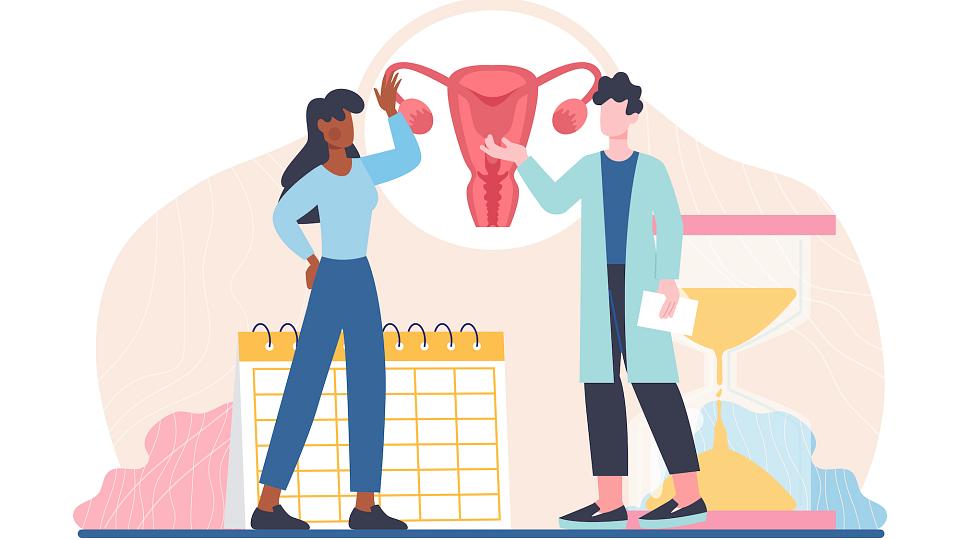
A New Non-Hormonal Menopause Drug Could Help Relieve Hot Flashes
If you’re over the age of 50 and constantly asking your friends, “Is it hot in here, or is it just me?” you may be going through “The Change,” also known as menopause. Those hot flashes, called vasomotor symptoms, are classic signs of menopause and perimenopause.
Camille Moreno, DO, NCMP, medical director of University of Utah Health’s Midlife Women’s Health and Menopause Medicine Program, says hot flashes and other menopausal symptoms can negatively impact quality of life. She encourages women to speak with their doctors about options for hormonal therapy or the new FDA-approved non-hormonal drug called Veozah (Fezolinetant).
“Menopausal hormone therapy, which is a prescription therapy, is the most effective treatment option for management of vasomotor symptoms,” Moreno says. “But those who are not good menopausal hormone therapy candidates should also talk to their medical provider about non-hormonal prescription therapy options, which have been studied to be up to 69% effective.”
Am I Going Through Menopause or Perimenopause?
Menopause is defined as one year without a period, and it typically begins around age 50 as the ovaries make less estrogen and progesterone. Symptoms often wax and wane over the span of a decade. Perimenopause typically presents itself with irregular periods and hot flashes by around age 40. If you’re experiencing symptoms related to perimenopause and menopause, book an appointment with your health care provider to discuss next steps.
What Is Veozah and How Does it Work?
Veozah is a non-hormonal prescription drug—the first in its class of medications—that alleviates hot flashes by blocking a particular chemical and area in the brain called neurokinin 3 (NK3), which regulates body temperature.
Why Should I Consider Non-Hormonal Therapy?
Hormone-replacement therapy is highly effective but not recommended for women with the following conditions:
- Hormone-sensitive cancer (i.e., breast cancer)
- Blood clots in the leg or lung
- Heart disease (prior stroke and/or heart attack)
If you’re looking for a non-hormonal treatment, speak with your doctor to see if Veozah is right for you.
Moreno advises women to undergo health screenings before starting the drug because it may pose serious risks for liver conditions.
“Liver injury may be a possible side effect,” Moreno says. “It’s recommended that medical providers check liver function testing in women before they start the drug, then at three months, six months, and nine months after initiation of therapy.”
How Can I Access this Drug?
If Veozah seems like a better option for alleviating uncomfortable and oftentimes disruptive symptoms, speak with your licensed health care provider about getting a prescription.
Where Can I Get More Support?
Whether or not you choose to alleviate your symptoms with medication, you don’t have to go through the ups and downs of menopause alone. Many support groups and online resources can help you through this mid-life journey.
Hear From Our Specialists
The Science Behind Hot Flashes in Women and How to Cope
Hot flashes are a signature symptom of menopause, but for some women, they last far longer than expected—sometimes up to 15 years. What causes them, and why do they vary so much from person to person? Women's health expert, Kirtly Parker Jones, MD, explains the medical science behind hot flashes. Learn about the treatment options and when to seek help.





